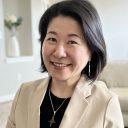A “historic” visit will take place, according to the US Deputy Secretary of State, when President Biden hosts Japan’s Prime Minister Fumio Kishida for a state visit on April 10th. During the only second such state visit since 2015, Kishida will, at the urging of a bipartisan group of US Senators, speak at a joint session of the US Congress and attend the first-ever US-Japan-Philippines trilateral summit. The visit signifies the crucial importance of the US-Japan alliance in the context of rising geopolitical tensions and economic competition in the Indo-Pacific region.
Sadly, we cannot take the current strong partnership for granted, as Japan expertise in the US is declining. Few US donors support the development of future American leaders with a nuanced understanding of Japan and personal ties with Japanese public intellectuals and decisions makers. This is despite the strong foundation to do so, including the long-standing historic and cultural ties, a shared global agenda for “competitiveness and resilience” as two leading democracies, and American good will toward Japan, with polls showing 80 percent of Americans view Japan favorably.
The two countries also have ongoing programs that have helped build informal ties between people, including the Japan Teaching Exchange Program (JET), funded by the Japanese government, 38 Japan-America societies and other non-governmental organizations across the US, and over 450 sister city relationships.
Today, only few Japan-focused programs in the US are promoting intellectual exchanges and policy dialogues between the two countries, or training a new generation of professionals who learn together and from each other, building ties that can translate into shared global leadership. In the past, international-minded donors such as the Ford and Rockefeller Foundations supported intellectual exchanges and Japan studies for Americans, participants from which became the backbone of our alliance building and shared agendas.
Their support helped our country understand a rising economic power. The low level of philanthropic support reflects the fact that Japan is no longer a problem; that China is of greater concern; and serious problems at home such as racism, gender inequality and poverty urgently need attention.
Japanese philanthropic support has also waned compared to the post-war period when American giving was often matched by Japanese corporations. Changes in the tax system, among other reasons, drove down corporate and private foundation support. Looking ahead, slow economic growth and weakened yen offer little hope for new funds, despite the recent rise in stock prices.
Besides scholarships and fellowships, short-term exchange programs can provide the necessary opportunities for future American leaders to witness Japan firsthand and have in-person dialogues with Japanese leaders and counterparts.
These programs can be designed as a weeklong study tour in Japan for a delegation of emerging American experts or a strategic dialogue between leading and emerging experts from each side and across sectors to exchange and align their views on key challenges in the region. Some of the current leaders in US-Japan relations were indeed young participants in these kinds of programs in previous decades.
Programs for members and staff of the US Congress will particularly benefit from US private foundation’s support, as Congressional ethics limit who can support Congressional travel overseas. But US-Japan programs should target participants beyond the policy community in Washington or the business community in New York. The underpinnings of US-Japan relations can also be strengthened through investments in regional leaders in places outside of these traditional targets.
Providing seasoned but busy experts with opportunities to spend time with the Japanese in Japan, away from the distractions at home, goes a long way to strengthen their appreciation for the country. Yet these opportunities are unfortunately hard to come by. Despite having general affinity toward Japan, most Americans will find it challenging to travel to Japan and engage in substantive dialogues or research there on their own initiative given geographical distance, language and cultural differences.
Japan may not be an immediate problem for the US, but our relationship will become a problem if we do not invest in it and the professionals required to foster cooperation. Does Japan need to be a problem to get our attention? Is there a better country for the US to partner with than Japan to protect America’s vital interests in the region? The US needs more American experts in a range of fields to develop collaborative ties to Japan on a host of shared issues. They do not grow overnight. We need longer-term, sustained and strategic investment in nongovernmental efforts to nurture them.
Susan Berresford is a former president of the Ford Foundation (1996-2007) and a member of the board of Japan Center for International Exchange (JCIE/USA).
Kazuyo Kato is executive director of Japan Center for International Exchange (JCIE/USA), a US-based non-profit organization dedicated to strengthening US-Japan relations and collaboration on shared challenges







Comments (0)